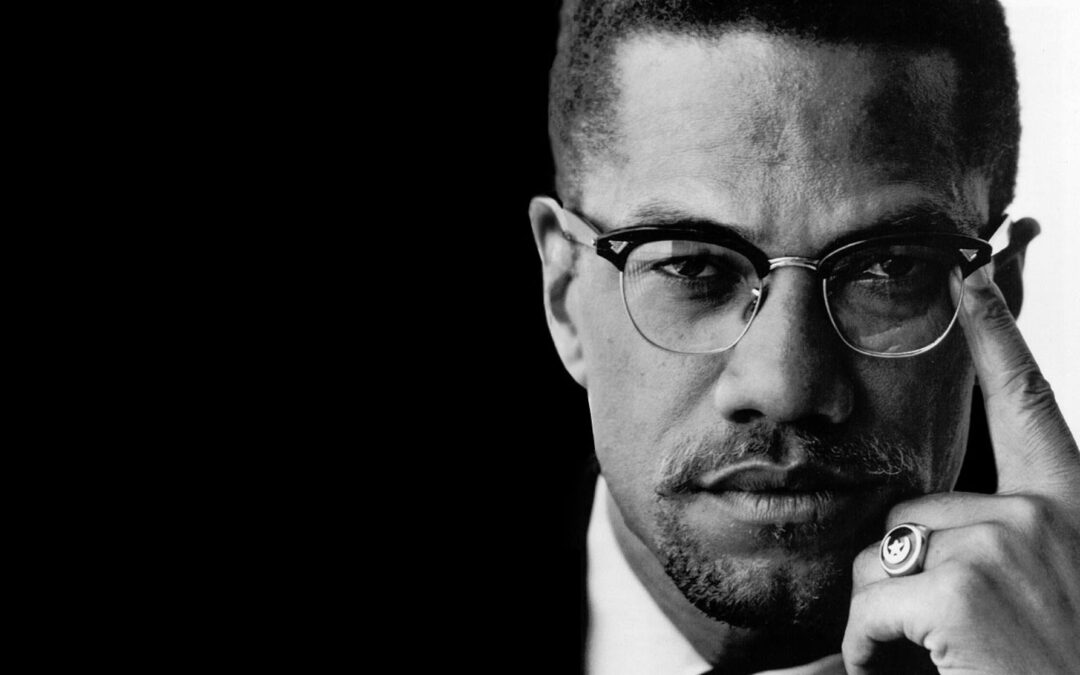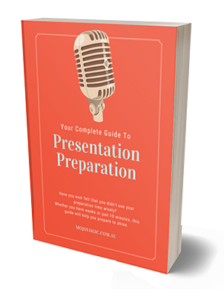The Ballot or the Bullet speech was delivered by American civil rights activist Malcolm X on 3rd April 1964 at Cory Methodist Church in Cleveland, Ohio.
“Once you change your philosophy, you change your thought pattern. Once you change your thought pattern, you change your attitude. Once you change your attitude, it changes your behavior pattern and then you go on into some action.”
Target your message
This speech is a challenge to fellow African Americans to fight discrimination by legislative means (the ballot) and if necessary by violent means (the bullet). Malcolm X’s message is overtly aimed at the black community. But there is a covert subtext, of course, for the rest of the American nation that might be listening – the time for change has come.
This speech is not an academic argument for why the civil rights movement is necessary in America; although Malcolm X had engaged in such discussion at other times. Instead, this speech is a call to arms for his people to unite and fight. To overcome whatever internal grievances and difference might exist in order to unify for the resistance against white American who was ‘not their friend’. His audience was encouraged to judiciously exercise their right to vote and to rise up against oppression if such democratic processes did not result in significant movements towards equality.
The power of this speech stems from its clarity of purpose.
Malcolm X called for African Americans to be united against the common enemy:
“If you black you were born in jail. In the north as well as in the south. Stop talking about the south. As long as you are south of the Canadian border you are south.”
“This is why I say its the ballot or the bullet. It’s liberty or it’s death. It’s freedom for everybody or freedom for nobody.”
Declare a Position
To land his message, Malcolm X chose to clarify his position. Though the Nation of Islam forbade participation in the political process, Malcolm X argued for voting. In doing so he signalled the importance of freedom over other competing edicts. Rather than venturing into discussion on religion, national unity and competing political factions he made a clear declaration:
“I am a Muslim minister the same as they are Christian ministers. And I don’t believe in fighting today on any one front but on all fronts. In fact, I am a black nationalist freedom fighter.“
He implores his audience to set divisive religious issues aside in favour of a unified front:
“So today, though Islam is my religious philosophy, my political, economic and social philosophy is black nationalism.”
Use Repetition, Rhythm and Rhyme
There is a lyrical quality to this speech. You can hear the echoes of his father, a Baptist minister, in the metronomic speech patterns. Repetition of key phrases is used throughout, none more than the headline ‘the ballot or the bullet’. In reference to the white man controlling the black man.
“So we’re trapped. Trapped. Double trapped. Triple trapped. Anywhere we go we find we are trapped. And every kind of solution that someone comes up with is just another trap.”
Malcolm X’s speaking style is rhythmic. This speech is nearly an hour-long, but the rhythm serves to keep us listening, almost nodding and tapping out the beat to accompany the words. Rhythm and repetition come together in this impressive excerpt:
“Once you change your philosophy, you change your thought pattern. Once you change your thought pattern, you change your attitude. Once you change your attitude, it changes your behaviour pattern and then you go on into some action.”
The technical term for that rhetorical flourish is anadiplosis.
“Today its time to stop singing and start swinging”
“You and I have never seen democracy. All we see in hypocrisy”
Serious with a touch of humour
Not only is the message serious, but the delivery is also long. In part, this is made more digestible for the audience by the use of humour. This case in the form of irreverence. Lightening, somewhat, the feeling that one is being lectured to:
“We suffer political oppression. Economic exploitation and social degradation. All of them from the same enemy. The government has failed us, you can’t deny that. Anytime you live in the 20th century, 1964 and you’re walking around here singing we shall overcome the government has failed us. This is part of what’s wrong with you. You do too much singing.”
Click here for the full-length speech.
Or watch the abridged version below:
__________________________________________________
A Speech a Week Series
Words have the power to change the world. Speeches are used by leaders, revolutionaries and evangelists to persuade people to think differently, to feel something new and to behave in remarkable ways.
In this series we will examine one notable speech per week. We hope to cast a wide net – including politicians, business leaders, preachers, entertainers and philosophers. These articles will consider matters of content and style to uncover the secrets of oratorical success.
By examing the components of speechcraft we can improve our own powers of persuasion. We will come to appreciate the craft of eloquence – guarding against silver-tongued miscreants whilst gradually building our own expressive capability.
If you would like to contribute to the series by suggesting a speech, please send us a message via the mojologic website.


